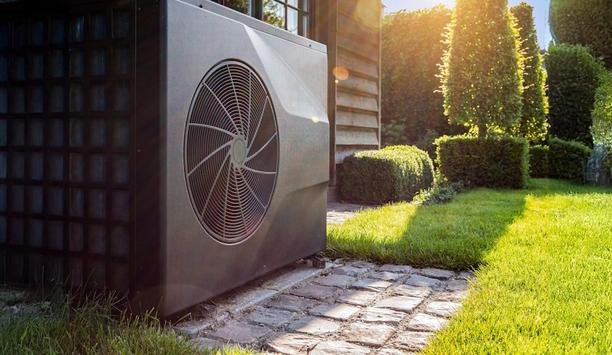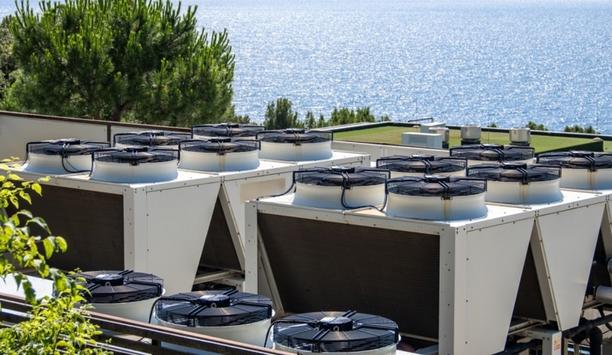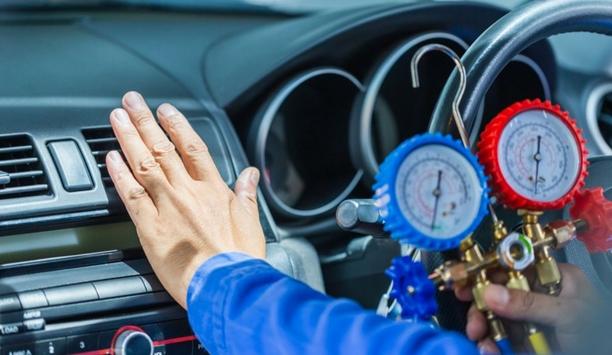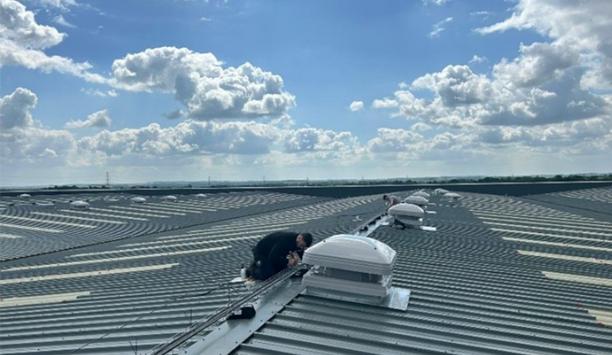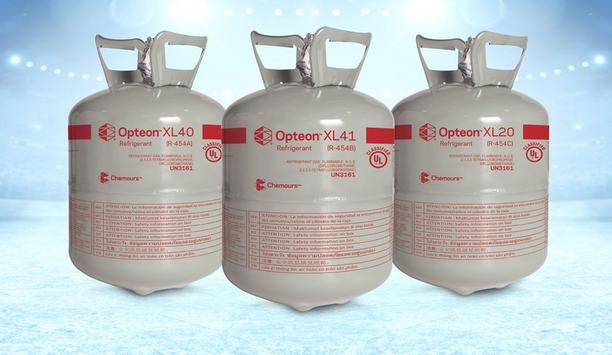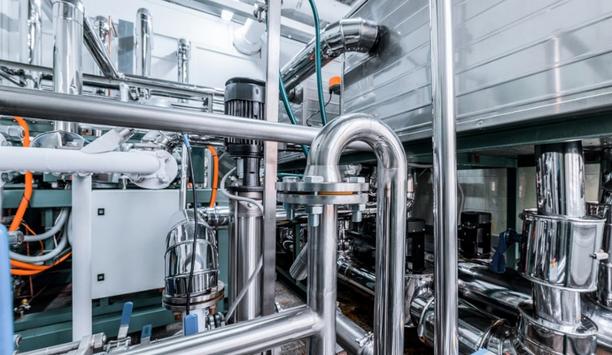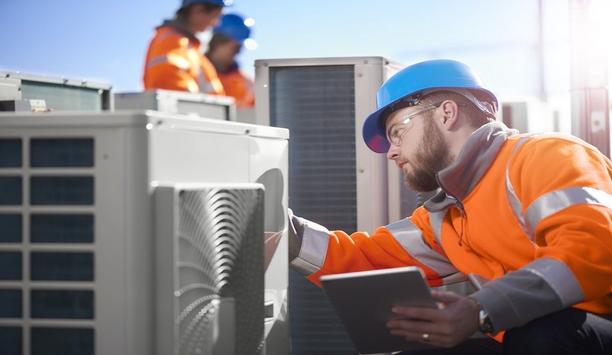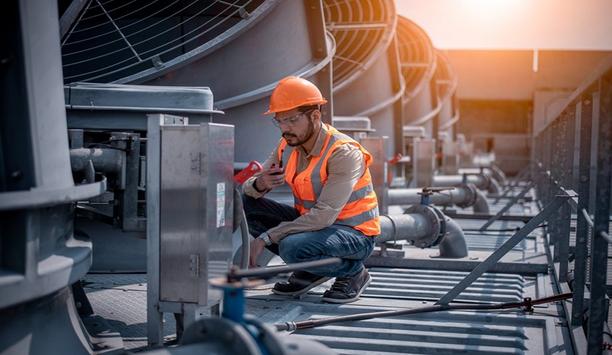EPA - Expert Commentary
Meeting a project’s overarching design goals is vital in the building and construction sector. Creating a sustainable building could be one of these goals — driven by company commitments, federal policies, and state-based initiatives. However, the priorities of minimizing capital and long-term operating costs and maintaining project timelines often prevail. Frequently, the perception in the industry is that these priorities — especially cost — are incompatible with...
The HVAC industry stands at a critical juncture, facing substantial regulatory pressures aimed at reducing its environmental impact through the phased elimination of high Global Warming Potential (GWP) refrigerants. Driven by international agreements and local environmental guidelines, manufacturers, suppliers, and service providers are swiftly transitioning towards more sustainable alternatives. This shift is fundamentally reshaping compressor technologies, retrofitting procedures, and lifecyc...
The HVAC/R industry is in the process of a major shift as A2L refrigerants become the standard in residential and commercial system HVAC. This change is being propelled by stricter environmental policy and advancements in refrigeration technology. However, the transition is not without its hurdles, posing new considerations for system owners, technicians, and equipment manufacturers. Favor of GWP alternatives The Environmental Protection Agency (EPA) has established clear guidelines to phase...
“If you don’t like the weather in New England, just wait a few minutes.” To this day, Mark Twain’s quote is used to describe quickly changing weather conditions in regions throughout the United States, United Kingdom, and elsewhere. However, in contrast to the weather, the climate change being experienced globally is creating nontraditional conditions that are much more permanent. Consequently, HVACR systems are being subjected to a new set of conditions that, if not ad...
It’s often said the only constant in life is change. In the HVACR industry, that phrase has been especially true. We saw another year of transitions in 2024 that included evolving efficiency and refrigerant regulations, changing corporate net zero targets, the continued emergence of advanced heat pumps, and the impact of artificial intelligence (AI) in building management. Smart and sustainable Throughout these transformations, the industry continues to overcome challenges and in...
As environmental regulations become increasingly stringent, the HVAC/R industry is turning to sustainable refrigerants to minimize environmental impact. A3 refrigerants—flammable gases with low global warming potential (GWP)—are emerging as a preferred choice. However, their adoption introduces additional regulatory requirements. EPA regulations To address these challenges, the industry is leveraging innovative solutions like enhanced small-diameter copper tubes, which enable com...
By now, the HVAC industry is well versed in, and operating successfully with, various HFC refrigerant production and consumption reduction schedules put forth by regulatory bodies. Under the EPA American Innovation and Manufacturing (AIM) Act, for example, the U.S. experienced a significant reduction (another 30%) in January 2024, advancing the goal of an 85% HFC phasedown from historic baseline levels by 2036. And the EU is working toward its stated objective of an HFC phaseout by 2050. tech...
Automotive HVAC is a heating, ventilation, and air conditioning system installed in automobiles, such as passenger cars, pickup trucks, and heavy-duty trucks. Like other air conditioning systems, automotive HVAC cools the air by transforming the refrigerant into a liquid or gas. The heating process, on the other hand, is characteristic of automotive HVAC as it uses the heat created by the engine. HVAC systems in the automotive The adoption of heating, ventilation, and air conditi...
How can UK businesses effectively tackle the challenge of cooling commercial and industrial buildings? Cooling commercial and industrial buildings can be a challenge for UK businesses. In recent years, the spiraling energy costs have put pressure on businesses with regard to finding new and innovative ways to achieve the same result with less capital outlay and less maintenance. New system installs have sometimes been put on hold and maintenance schedules squeezed, leaving many businesses with...
From temperate climates that reach mid-90 F in June and mild winters allowing people to be outdoors without jackets to the “May flowers” that bloom in early March, it’s evident that society is experiencing World Refrigeration Day’s 2024 theme: “Temperature matters.” In addition to driving climate change, global warming is driving changes in how people live and how industries adapt and innovate to support new dynamics. This is especially true for the HVACR Indu...
By now, most of the HVACR industry is familiar with the HFC phasedown portion of the U.S. EPA American Innovation and Manufacturing (AIM) Act that was signed in 2020 and finalized in 2021. The first phasedowns started Jan. 1, 2020, with a 10% reduction in HFC refrigerant production, importation, and consumption, and was followed by an additional 30% reduction that began Jan. 1, 2024. As these regulations work to achieve a total 85% HFC phasedown from historic baseline levels by 2036, Tech...
I remember Dr. Dave Bowman from Kubrick's "2001: A Space Odyssey" commanding HAL 9000 to open the pod bay doors, and HAL chillingly responds, "I'm sorry, Dave. I'm afraid I can't do that." Fortunately, unlike the fictional HAL," ChatGPT and other GenAI tools remain compliant and helpful, far from refusing commands or leaving us stranded in space. In the rapidly evolving landscape of technology, artificial intelligence (AI) should play a pivotal role in transforming various aspects of our dai...
Although the European Union is several steps ahead in the transition away from hydrofluorocarbon (HFC) refrigerants, members of the HVACR industry in other countries currently find themselves in a more urgent situation when it comes to stepping down HFCs and stepping up use of new-generation hydrofluoroolefin (HFO) refrigerants and emerging A2Ls. EPA’s AIM Act This is especially true in the U.S., where 2024 kicked off with an additional 30% reduction in HFC production and consumption un...
Peter Van Den Heede, Head of Sales and Marketing, Benelux, ABB Motion, explains how electrification systems are paving the way for sustainable urban landscapes. As the fight against climate change intensifies, the European Union has set crystal clear targets on the path to Net Zero. If we are to meet the EU’s ambitious goals of a 55 percent reduction in greenhouse gas emissions by 2030, and complete climate neutrality by 2050, then we need to find ever-smarter ways to save energy.&n...
This time of year, a lot of planning is underway. Companies throughout the HVACR industry are mapping out the best path to maintain their current level of business, pursue growth while staying in their lane, or expand into a new area based on changing customer needs and industry opportunities. Whether you’re a small family-owned residential HVAC shop, a major player in commercial HVACR service or manufacturing, or anywhere in between, it’s helpful to be aware of the strong dynamics...
Nothing is immune to entropy. As buildings age, they suffer natural breakdowns in efficiency, performance, and useability, compromising occupant comfort and leading to higher energy bills. Luckily, they do not have to stay that way. Retro-commissioning brings existing structures up to speed so they can function their best. What Is Commissioning? Commissioning helps buildings operate as the owners intended and ensures staff maintains their equipment and systems. During new construct...
According to some recent estimates, the cooling industry accounts for approximately 10% of global carbon dioxide (CO2) emissions. To place this in perspective, the transportation sector, as the highest contributor, accounts for approximately 20% of global CO2 emissions. While some may see this as a “glass half empty” scenario, the better approach is the one taken by key players in the HVACR space. As we see it, because the cooling industry has been a source of significant emis...
Poor indoor air quality (IAQ) has been a longstanding problem within educational institutions, where it has been known to affect productivity and performance, as well as mental and physical health. And it’s not just the pupils at risk, with studies finding that this deleterious phenomenon can also compromise teaching performance and delivery, which inevitably affects the quality of the information received. CO2 concentrations This has recently been evidenced in a study conducted by the U...
With the UK experiencing increasingly warmer summers and more frequent heatwaves, we’re equally seeing more air conditioning units installed in both commercial and residential spaces. As the demand for air conditioning continues to increase, so too will the demand for copper pipes. Copper is a trusted and reliable material that air conditioning installers have been using for many years and, not only that, it’s also infinitely recyclable – making it a sustainable alternative to...
Following the UK Chancellor of the Exchequer Rishi Sunak’s Spring Statement on 23 March, several imminent and future changes were laid out by the UK government. This included VAT scrappage for residential energy-saving measures like heat pumps and solar panels, a 12-month cutting of fuel duty by 5p per liter, and to support the decarbonization of commercial premises, targeted business rate exemptions for eligible plant and machinery used in onsite renewable energy generation and stora...
Environmental ventilation is an incredibly important element of any building. It uses the natural, external airflow through a building to make the internal climate healthier. When appropriate environmental control is implemented, the benefits include better air quality, reduced CO2 emissions, and lower overhead costs. However, it’s not all sunshine and roses. This presents some issues that must be addressed. Residential buildings often use centralized heating systems, boilers, and ho...
With COP26 behind us, the words ‘Net Zero’ still hangs heavy in the air as we look to make the most of the momentum gained by the summit. On the face of it, it’s a daunting task. However, like so many challenges in life, it becomes considerably more manageable when broken down into smaller steps. It’s now a widely accepted fact that lighting, heating, and cooling operating emissions account for a significant proportion (28%) of all carbon emissions emitted by building an...
Decarbonizing heat is one of, if not the biggest challenges we face in our journey to net zero. Most of the heat in UK homes and businesses is currently provided through fossil fuels, predominantly gas. Gas releases carbon emissions and other particles that are bad for air quality and bad for our environment. So, to get to net-zero we need to replace gas as our main source of heat. The Government plans to phase out gas boilers in newly build homes from 2025, but with the vast majority of exist...
AI (Artificial Intelligence) is a smart buildings’ biggest ally. Without it, a building could hardly be classed as smart. For building owners and managers, AI is imperative to create a secure and comfortable experience for their occupants every day. What a building platform should do is gather data from various sources from the building management system and other smart technologies, to gather it all in one place. The data should then be fed into a flexible, scalable cloud-based platform...
Even though the COVID-19 pandemic is seemingly drawing to a close, living, working and learning at home is set to continue. Under this new normal, home electricity use is expected to double by 2050. Simultaneously, as climate change devastates communities around the world, we are faced with a moral and economic obligation to cut CO2 emissions from houses. Our goal is to build Net Zero houses and we can't get there fast enough. Fossil fuels use in heating systems Many countries continue to rely...
Seasonal transitions are the perfect time to take inventory and inspect a building’s various systems. We’ve been reminded for years that when we set our clocks back, we should also replace the batteries in our smoke detectors. The same thought process can be applied in support of seasonal preventative maintenance for a building’s HVAC system. Now that the cooling season has passed for a large part of the country, it is time to ensure that HVAC systems have been shut down prope...
I am writing this the day after the Autumn Spending Review, which among many measures, included a huge focus on how the Government wants to ‘level up the country’, creating a new post-pandemic economy, with higher wages and higher skills. Part of this is the £500 million ‘Multiply’ scheme, which aims to increase numeracy and basic mathematics for adults in the United Kingdom via in person tutoring, digital training and flexible courses. Lack of basic skills to acce...
The development of digital technologies in the Heating, Ventilation and Air Conditioning (HVAC) sector has been transformational for the industry, as well as for those who run HVAC systems. While the electrification and digitalization of machines, and assets has made a lot of operations simpler, it has also meant that the collection of machine data has never been more critical. Given that engineers can now view lots of different metrics on a single screen, including things like heating control...
With the increase in climate protests and UN reports highlighting future net-zero challenges, industries are trying to focus their business practices on principles of sustainable development and responsible investment. In the building sector specifically, landlords are gravitating towards certification schemes such as BREAM, LEED, and WELL (among others) to promote the sustainability of their assets and boost green credentials. Tenants are now demanding that the spaces they live and work in ar...
It is now more common to read about cases of Legionnaires’ disease in the media than ever before, with outbreaks regularly being reported in cities around the world, all the time. Many of these cases are attributed to contamination of domestic systems, showers and spas, but some are the result of operating cooling towers. While this problem is not new, with the first reported case in Philadelphia, in 1976, the United Kingdom (UK) has been at the forefront in leading the battle with Legionn...
From A To L: Your A2L Transition Guide
DownloadLeveraging Radiant And Hydronics To Help Achieve Decarbonization Goals
DownloadSealed Connectors In Harsh Environments
DownloadPowering And Cooling Next Generation Data Centers
DownloadDebunking Myths To Promote A Bright Future For Heat Pumps
Download


